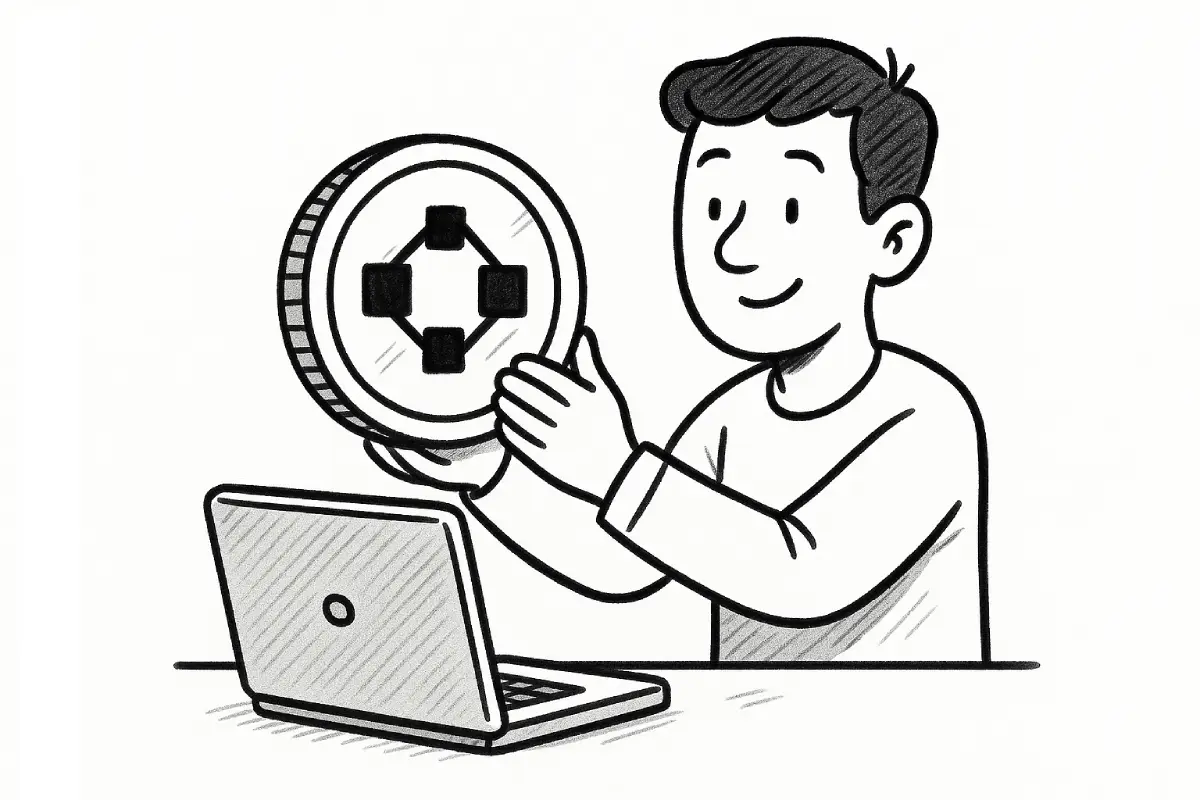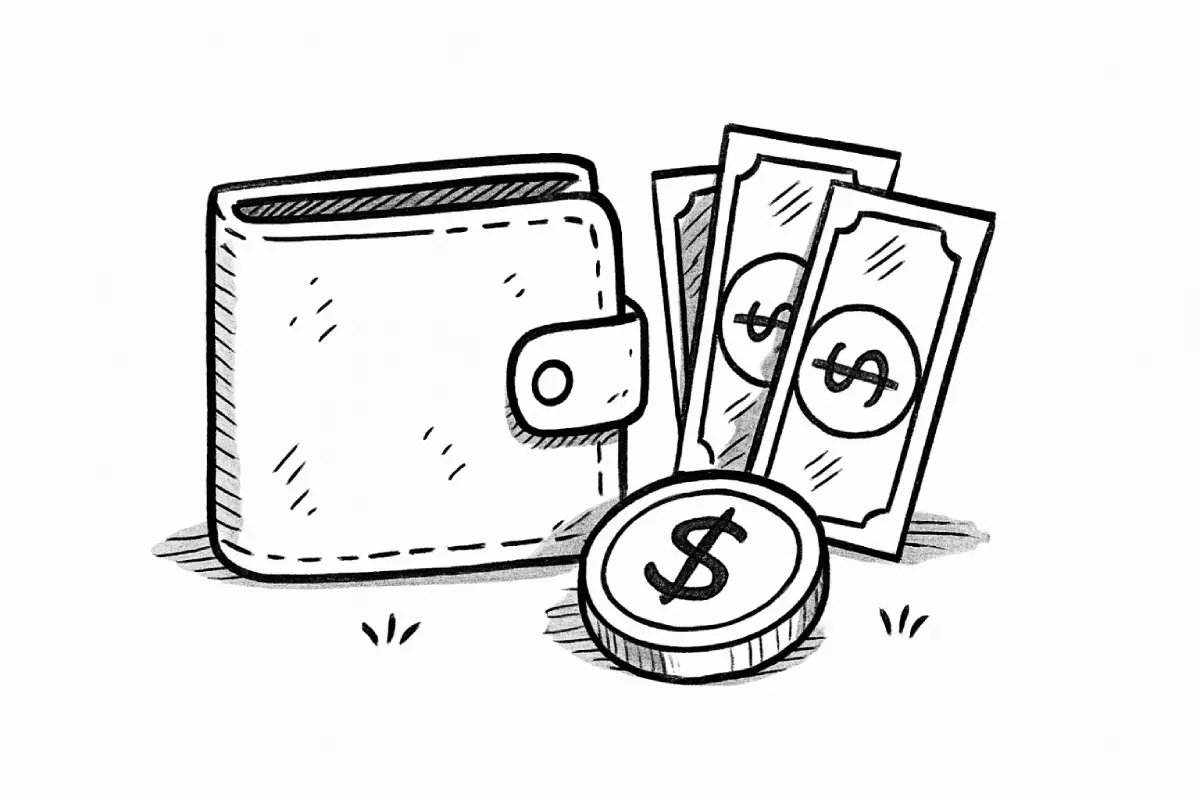For the better part of a decade, “blockchain” has been a solution in search of a problem. It’s been a buzzword, a black box of technical jargon tied to the dizzying highs and terrifying lows of cryptocurrency. For most of us, it has felt abstract, intangible, and frankly, irrelevant to our daily lives.
But behind the noise and the hype, the core ideas of blockchain technology have been quietly maturing. And now, they are poised to fundamentally rewire some of the most archaic and frustrating processes in the professional world: hiring and getting paid.
This isn’t about companies paying you in Bitcoin (though that’s a small part of the story). This is about something far more revolutionary. It’s about a future where your professional identity is truly your own, where trust is built into the system, not assumed, and where the friction of finding a job and processing payroll is drastically reduced.
The disruption isn’t coming from a single killer app. It’s a slow, foundational shift in how we manage three critical things: identity, verification, and transactions. And it’s going to change the power dynamic between employees, employers, and the institutions that currently act as middlemen.
The Lie on Your Resume (And How to Kill It Forever)
Let’s start with the most broken part of the hiring process: the resume. The traditional resume is a document of claims, not facts. It’s a marketing brochure that we, as professionals, create about ourselves. And let’s be honest, it’s a system built on a foundation of half-truths and embellishments. This isn’t just a feeling; studies consistently show that a staggering number of people lie on their resumes. This creates a massive, time-consuming, and expensive problem for employers.
Companies spend billions on background checks, calling universities to verify degrees, and contacting past employers to confirm dates of employment. It’s a slow, manual, and deeply inefficient process based on a fundamental lack of trust.
This is the first problem blockchain is poised to solve, through a concept called decentralized identity and verifiable credentials.
Imagine this: Instead of you claiming you graduated from a university, the university issues you a digital, cryptographically-secured credential that lives in your personal digital wallet. Instead of you claiming you worked at a company for three years, that company issues a verifiable record of your employment.
These aren’t just PDF files; they are tamper-proof, blockchain-verified records. You, the individual, own and control this data. When you apply for a job, you’re not just sending a list of claims; you’re granting the employer temporary access to a portfolio of verified, undeniable facts.
The recruiter doesn’t need to call your university. They can cryptographically verify your degree in seconds. They don’t need to wonder if you actually have that professional certification; the issuing body has already stamped it onto the blockchain. The entire concept of a background check becomes obsolete.
This isn’t a distant fantasy. The technology, based on official standards from the World Wide Web Consortium (W3C), is already being built. Companies are emerging that specialize in this very process. The shift is from “trust, but verify” to a state of “verifiable trust.” It restores integrity to the hiring process and gives you, the individual, ultimate ownership over your professional story.
Smart Contracts: Your New Employment Agreement
Once you’re hired, the next archaic process is the employment contract and the subsequent payroll. This is where smart contracts come into play.
A smart contract is not a legal document in the traditional sense. It’s a self-executing agreement with the terms of the agreement written directly into lines of code. It lives on a blockchain and automatically executes when certain conditions are met.
Think about it in the context of freelance or gig work. Today, a freelancer completes a project and sends an invoice. Then they wait. They might wait 30, 60, or even 90 days to get paid, constantly chasing the accounting department.
With a smart contract, the terms are pre-agreed: “WHEN the project is marked as complete by the manager, THEN automatically release the payment of X amount from the company’s wallet to the freelancer’s wallet.”
There is no invoicing. There is no waiting. There is no accounts payable department to chase. The payment is triggered instantly and automatically by the fulfillment of the agreed-upon condition.
This extends to full-time employment as well. Imagine a world where your salary isn’t processed in bi-weekly batches, but where a smart contract streams your pay to you in real-time as you work. The moment you clock out for the day, the corresponding portion of your salary is already in your digital wallet. This could fundamentally change our relationship with cash flow and eliminate the stress of living paycheck to paycheck.
The Global Payroll Headache
For companies with international remote workers, payroll is a nightmare. They have to navigate different currencies, international transfer fees, and slow banking systems. It can take days for money to move across borders, and a significant chunk gets eaten up by fees.
This is where cryptocurrencies, specifically stablecoins (digital currencies pegged to a stable asset like the U.S. dollar), become incredibly powerful. Paying an employee in Argentina or the Philippines with a stablecoin like USDC is nearly instantaneous and costs a fraction of a traditional bank transfer.
This isn’t about speculating on volatile assets. It’s about using the rails of blockchain technology to move value across the globe efficiently. It makes hiring the best talent, regardless of their location, dramatically simpler and cheaper. While the regulatory landscape is still evolving, the trend toward using digital assets for cross-border payments is undeniable.
The Hurdles: Why Hasn’t This Happened Yet?
If this all sounds so revolutionary, why isn’t it already the standard? The challenges are significant.
- Scalability and Cost: While getting cheaper, some blockchain transactions can still be slow and expensive compared to traditional systems.
- Complexity and Adoption: This is a huge mental shift. Getting millions of individuals, companies, and institutions to adopt a new way of managing identity and transactions is a monumental task.
- Privacy Concerns: While you own your data, putting any information on a public blockchain, even encrypted, raises legitimate privacy questions that need to be carefully addressed.
- Regulation: Governments are still figuring out how to regulate this new world, creating uncertainty for businesses.
The future of hiring and payroll won’t be a sudden, dramatic overthrow of the old system. It will be a gradual integration. It will start with forward-thinking companies adopting blockchain for credential verification to reduce hiring costs. It will grow as more freelancers demand the security of smart contracts. It will expand as global companies realize the efficiency of crypto payroll.
What’s clear is that the fundamental promise of blockchain—decentralization, user ownership, and verifiable trust—is a direct antidote to some of the most inefficient and frustrating parts of our professional lives. The disruption is coming, not with a bang, but with a quiet, irreversible click of a transaction being verified on the chain.
You might also like: Pay Transparency Laws by State: Where Companies Must Share Salaries









